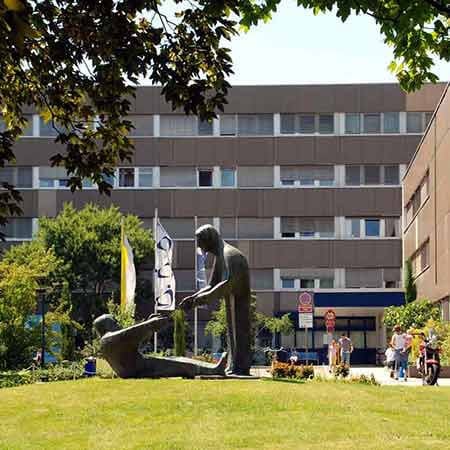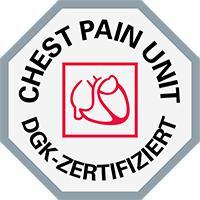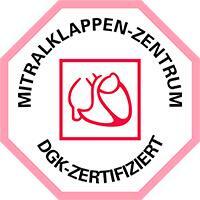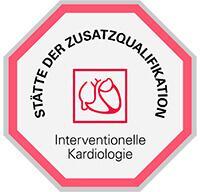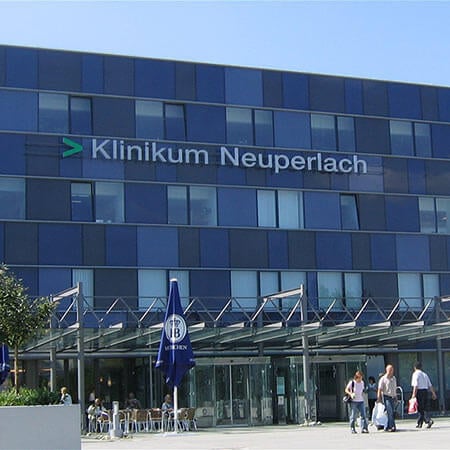The pericardium is the organ that maintains the natural direction of the heart. Pericarditis is a cardiac disease characterized by inflammatory processes in the pericardial layers. As a result of fluid accumulation in the sheath and fibrous changes, the disease disorganizes the functionality of the pericardial muscles.
Content
- Overview
- Types of pericarditis
- What causes pericarditis?
- Symptoms of pericarditis
- Diagnostics
- Treatment tactics
- Options for surgical treatment
- Why undergo treatment in hospitals in Germany?
- The prices for treatment in Germany
- Why undergo treatment with Booking Health?
Overview
Pericarditis is an inflammatory disease of the pericardium. Pericarditis often occurs in diseases of internal organs of both infectious and non-infectious nature, systemic connective tissue diseases (rheumatism, systemic lupus erythematosus, etc.), tumors and allergic processes, as well as cardiac trauma. The inflammatory process may lead to thickening of the pericardial walls, formation of adhesions, and compression of the heart. It results in cough, dyspnea, dull or sharp pain, spreading to the neck, left arm, and scapula. The intensity of pain varies with changes in body position.
The inflammatory process may also lead to the accumulation of a large volume of fluid in the pericardial cavity. At the same time, significantly increased pericardial volume adversely affects the function of adjacent organs due to their compression and displacement. With the slow accumulation of fluid, the pathological process manifests itself as chills, and symptoms of intoxication. Increased fluid volume causes excruciating cough, shortness of breath, and hoarseness of voice. In severe cases, blood pressure decreases, the face becomes blue, and the pulse rate increases. This category of patients requires immediate intervention, during which a soft catheter is inserted into the pericardial cavity to evacuate the accumulated fluid. The surgical treatment of pericarditis (removal of pericardial areas compressing the heart) is performed only in cases of emergency.
Types of pericarditis
Acute and chronic forms of pericarditis are distinguished.
The acute fibrinous form is caused by the excessive filling of the pericardium with blood. The time for acute form development is 1-2 weeks. Acute pericarditis can last up to six months, although the average recovery time is around 4 months. Fluid with fibrin forms in the membrane cavities. There is a so-called fibrin sweating. In this form, the volume of fluid is small. The exudative form involves abundant fluid (exudate), which may have a different character and composition with its basis being leukocytes, lymphocytes, etc. If the volume is small, fibrinous discharge may resolve on its own. Purulent formations pose one of the greatest dangers to heart function.
Bloody hemorrhagic fluid forms when the body is affected by tuberculosis. It can be accompanied by cardiac tamponade, which is the name given to heart muscle dysfunction due to excessive fluid accumulation in the pericardium and increased pressure. And it can also occur without tamponade.
In chronic pericarditis, the pathology may bother the patient for more than six months.
Chronic exudative pericarditis has the same symptoms as in the acute form. Adhesive pericarditis is a complication of pericarditis, presented in the form of scarring, adhesions between pericardial layers, and connective tissue. In some cases, blood circulation is restored, but more often the pathology manifests itself by calcium deposits in the pericardium, tissue adhesion, formation of inflammatory granulomas, and various disorders of cardiac functionality.
One of the most difficult to treat subsequently is constrictive pericarditis when the pericardium becomes infiltrated with fibrous tissue and calcified. The pericardium thickens, which affects blood dynamics in the heart chambers, and as a consequence, venous stasis is observed.
What causes pericarditis?
Pericarditis is an inflammation of the pouch, or pericardium, which is the sheath covering the outside of the heart muscle. The main causes of pericarditis are the following:
- Infectious agents: viruses, bacteria, fungi, and even parasites. The inflammatory process in the pericardium is triggered by exo- and endotoxins released by microorganisms.
- Autoimmune diseases of the connective tissue, such as lupus erythematosus or scleroderma. In these pathologies, the body synthesizes antibodies to its own cells, which damage connective tissue and cause systemic inflammation.
- Heart disease. Serious damage to the heart muscle results in the spread of the pathological process to the surrounding pericardium. This can be seen in transmural myocardial infarction, infectious or reactive myocarditis.
- Damage to other organs, such as the kidneys, can lead to pericarditis. If the excretory function is severely impaired and renal failure develops, there is the deposition of metabolic products in serous cavities, including the pleura and pericardium.
- Penetrating pericardial trauma that compromises the integrity of the pericardial structures.
- Tumor metastasis, which causes pericardial carcinomatosis.
The causes of pericarditis are varied, and thus treatment approaches depend on what caused the inflammation. But in the absence of timely diagnosis and correction of this condition, the outcome is always the same. The outcome of chronic pericarditis is cardiac tamponade, which leads to the patient's death.
Symptoms of pericarditis
The onset of pericarditis, symptoms, and first signs are quite characteristic. The main reason to consider a visit to the hospital is chest pain. Pain syndrome in this disease can be quite pronounced and persistent. But there are cases when the first place in severity is a fever. Its combination with shortness of breath and chest pain is often mistaken for pneumonia.
The pain syndrome in this cardiac condition may have irradiation, as in angina pectoris – in the left arm and scapula. But the distinctive signs of pain in pericarditis are the absence of connection with the physical load. The pain is almost constant and intensifies with a change of body position or deep breaths.
In addition to pain, pericarditis is always accompanied by additional symptoms, including general weakness, increase in body temperature, shortness of breath at slight physical exertion, presence of heart palpitations, and decrease in blood pressure. Unlike angina pectoris, nitrate-based medications do not bring relief.
If you notice such symptoms yourself or in your loved ones, you should urgently consult a doctor, because the price of delay may be human life. Only a professional cardiologist, after examining patients and prescribing immediate instrumental examination, will be able to diagnose the condition exactly and recommend adequate treatment.
Otherwise, if medications are not administered on time, serious complications are inevitable. With cardiac tamponade, a large amount of exudate accumulates in the pericardial cavity. The result is that the heart muscle is literally compressed and can not fully contract. The result of such compression is an acute cardiovascular failure, cardiac arrest, and the patient's death. In this case, the usual methods of resuscitation rarely give a positive effect, and only the release of excessive exudative fluid from the pericardium can make the heart contract again.
Diagnostics
Doctors at cardiology clinics will carefully review your medical history and do a complete physical exam. Physical examination is important in the diagnosis of pericarditis. While listening to the heart, the specialist can detect a characteristic noise caused by friction of the pericardial structure. At a hospital in Germany, patients can undergo the full range of laboratory and instrumental diagnostics, including:
- Determination of indicators of the inflammatory or autoimmune process in the peripheral blood. Special laboratory tests will also help diagnose metabolic disorders underlying pericarditis.
- Ultrasound diagnosis (echocardiography) is the primary imaging modality to detect fluid accumulation or fibrotic changes in the pericardial structures.
- Electrocardiography and continuous monitoring.
- Radiography and tomographic studies of the chest organs.
- Pericardial puncture, which can be both a diagnostic and therapeutic procedure. The obtained exudate is sent for laboratory testing to determine its biochemical composition and microbiological analysis.
Treatment tactics
Treatment tactics for pericarditis depend on the form of the disease and its cause. In most cases, therapy with medication is used, bed rest is prescribed, physical activity restrictions and a strict diet is recommended (first of all, the amount of salt intake is restricted).
If pericarditis developed due to an infection, the patient is prescribed antibiotics, antiviral or antimycotic drugs. In allergic pericarditis, antihistamines and glucocorticosteroids are used. Doctors at cardiology clinics in Germany also prescribe anti-inflammatory and analgesic drugs. If necessary, other drugs can also be used to relieve symptoms of the disease and reduce the risk of complications.
The duration of therapy may vary. In some cases of acute pericarditis, improvement occurs on days 5-7 of therapy, but the average course of treatment is 21 days. If pericarditis is caused by tuberculosis, the treatment may take 6 months or more. Each case is different.
If complications develop, surgical treatment may be necessary. In particular, with cardiac tamponade, a puncture is made and the accumulated fluid is removed. In fibrinous pericarditis with thickening of the walls of the cardiac sac and compression of the heart, a cardiac surgeon may prescribe pericardectomy, which implies removal of a part of the pericardium.
The following groups of medications can be used in the drug treatment of pericarditis:
- NSAIDs, which relieve the symptoms of inflammation.
- Antibiotics, antiviral, antifungal, and antiparasitic drugs, if the etiological factor is an infectious agent.
- Glucocorticosteroids and cytostatics, if the cause of pericarditis is autoimmune pathology.
- Targeted drug therapy of the underlying disease that caused pericarditis: hemodialysis may be used for renal failure, and myocardial infarction; thrombolysis and restoration of blood flow through the coronary arteries.
At the risk of cardiac tamponade, the pericardial puncture is resorted to. The purpose of this manipulation is to remove fluid and prevent tamponade. However, the puncture is also diagnostically important. The obtained exudate is subjected to microscopy, bacteriological and cytological examination. It can detect atypical tumor cells or infectious pathogens.
The prognosis of pericarditis is generally favorable. If a correct diagnosis of pericarditis is made and treatment is started in time, a complication in the form of tamponade is extremely unlikely. But it is worth remembering that pericarditis, the treatment of which requires a professional approach, is quite a formidable and dangerous disease with its complications.
Options for surgical treatment
Complications of pericarditis may necessitate minimally invasive or surgical interventions in the hospital setting. Cardiologists and cardiac surgeons at German clinics perform the following types of procedures:
- Pericardial puncture. It is used as a method of emergency aid in case of cardiac tamponade caused by severe exudative pericarditis. During the course of treatment, a puncture may be performed several times. Drainage may also be inserted. The procedure is usually performed under local anesthesia and under ultrasound guidance.
- Pericardiectomy. This surgical procedure is used to remove calcifications and fibrotic changes that interfere with normal heart contraction. During the procedure, the sclerosed portion of the pericardium is removed to prevent the recurrent process.
The extensive clinical experience of German cardiologists ensures that the most effective treatment method for pericarditis in hospitals in Germany is chosen and prevents the development of complications.
Why undergo treatment in hospitals in Germany?
Specialists working in hospitals in Germany have achieved good results in the treatment of various cardiac diseases, including pericarditis.
Hospitals in Germany provide the full range of medical services both in diagnostics and treatment of cardiovascular diseases in general, and pericarditis specifically. The country pays a lot of attention to health issues and finances health care. That is why leading German cardiology clinics apply cutting-edge methods, the most advanced technologies, and have innovative equipment.
It is no less important that doctors and all medical personnel treat the patient with care and due respect. Everything is done to create the most comfortable conditions, reduce stress levels, and allow the person to focus on their health and on improving their condition.
To find out where the best place for pericarditis treatment in Germany is for you, contact Booking Health.
The prices for treatment in Germany
The average prices for the treatment of pericarditis in Germany are listed below:
- The cost of treatment with conservative therapy (differential diagnosis included) starts at 6,003 EUR.
- The cost of treatment with pericardial drainage starts at 6,191 EUR.
- The prices for cardiac rehabilitation start at 566 EUR.
Booking Health can provide a calculation of the cost of treatment in Germany for your clinical case.
Why undergo treatment with Booking Health?
Booking Health has many years of experience in medical tourism and knows everything about how to find the treatment options that fit you.
Services of Booking Health make it possible for you to concentrate on your recovery, while Booking Health takes care of all the arising issues and finds a clinic abroad, corresponding to the specifics of your diagnosis and your budget for treatment.
Besides, we will help you to prepare medical documentation, book flights, and accommodation, taking into account all individual wishes. Thanks to our help, thousands of people were successfully cured of pericarditis.
Authors: Dr. Vadim Zhiliuk, Dr. Sergey Pashchenko
